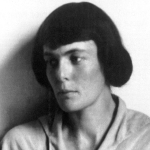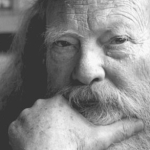“Dead people don’t like olives,”
I told my partners in eighth grade
dancing class, who never listened
as we fox-trotted, one-two, one-two.
The dead people I often consulted
nodded their skulls in unison
while I flung my black velvet cape
over my shoulders and glowered
from deep-set, burning eyes,
walking the city streets, alone at fifteen,
crazy for cheerleaders and poems.
At Hamden High football games, girls
in short pleated skirts
pranced and kicked, and I longed
for their memorable thighs.
They were friendly—poets were mascots—
but never listened when I told them
that dead people didn’t like olives.
Instead the poet, wearing his cape,
continued to prowl in solitude
intoning inscrutable stanzas
as halfbacks and tackles
made out, Friday nights after football,
on sofas in dark-walled rec rooms
with magnanimous cheerleaders.
But, decades later, when the dead
have stopped blathering
about olives, obese halfbacks wheeze
upstairs to sleep beside cheerleaders
waiting for hip replacements,
while a lascivious, doddering poet,
his burning eyes deep-set
in wrinkles, cavorts with their daughters.














Comment form: